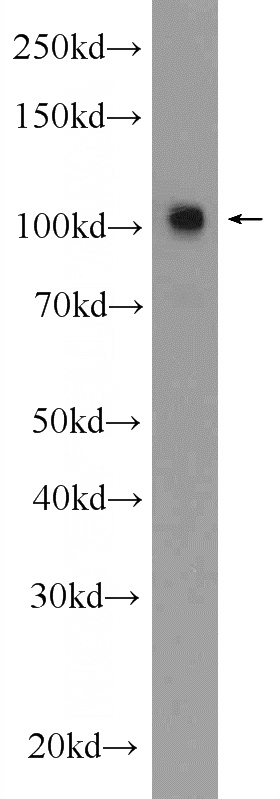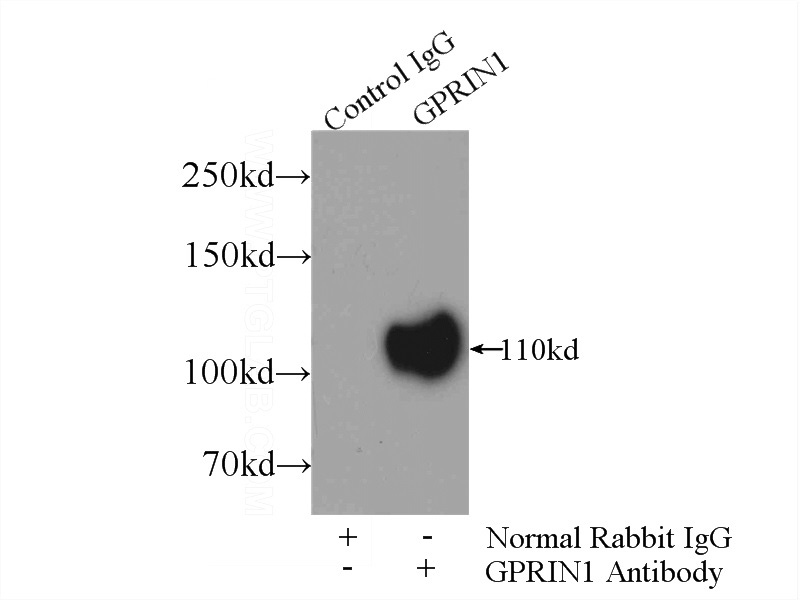-
Product Name
GPRIN1 antibody
- Documents
-
Description
GPRIN1 Rabbit Polyclonal antibody. Positive WB detected in mouse brain tissue. Positive IP detected in mouse brain tissue. Observed molecular weight by Western-blot: 100-110 kDa
-
Tested applications
ELISA, IP, WB
-
Species reactivity
Human, Mouse; other species not tested.
-
Alternative names
GPRIN1 antibody; GRIN1 antibody; KIAA1893 antibody
-
Isotype
Rabbit IgG
-
Preparation
This antibody was obtained by immunization of GPRIN1 recombinant protein (Accession Number: NM_052899). Purification method: Antigen affinity purified.
-
Clonality
Polyclonal
-
Formulation
PBS with 0.02% sodium azide and 50% glycerol pH 7.3.
-
Storage instructions
Store at -20℃. DO NOT ALIQUOT
-
Applications
Recommended Dilution:
WB: 1:200-1:2000
IP: 1:200-1:2000
-
Validations

mouse brain tissue were subjected to SDS PAGE followed by western blot with Catalog No:111141(GRIN1 Antibody) at dilution of 1:600

IP Result of anti-GRIN1 (IP:Catalog No:111141, 3ug; Detection:Catalog No:111141 1:500) with mouse brain tissue lysate 3600ug.
-
Background
GPRIN1 (G protein-regulated inducer of neurite outgrowth 1), also named GRIN1, may be involved in neurite outgrowth. Western blotting analysis has confirmed its expression in mouse neuroblastoma and rat pheochromocytoma cells. And both GPRIN1 and GNAO1 are membrane-bound proteins that are enriched in the growth cones of neurites (PMID:10480904). It has 2 isoforms produced by alternative splicing. This antibody detects GRIN1 at bands around 110 kDa.
-
References
- Li Y, Hu J, Höfer K. DHHC5 interacts with PDZ domain 3 of post-synaptic density-95 (PSD-95) protein and plays a role in learning and memory. The Journal of biological chemistry. 285(17):13022-31. 2010.
Related Products / Services
Please note: All products are "FOR RESEARCH USE ONLY AND ARE NOT INTENDED FOR DIAGNOSTIC OR THERAPEUTIC USE"
